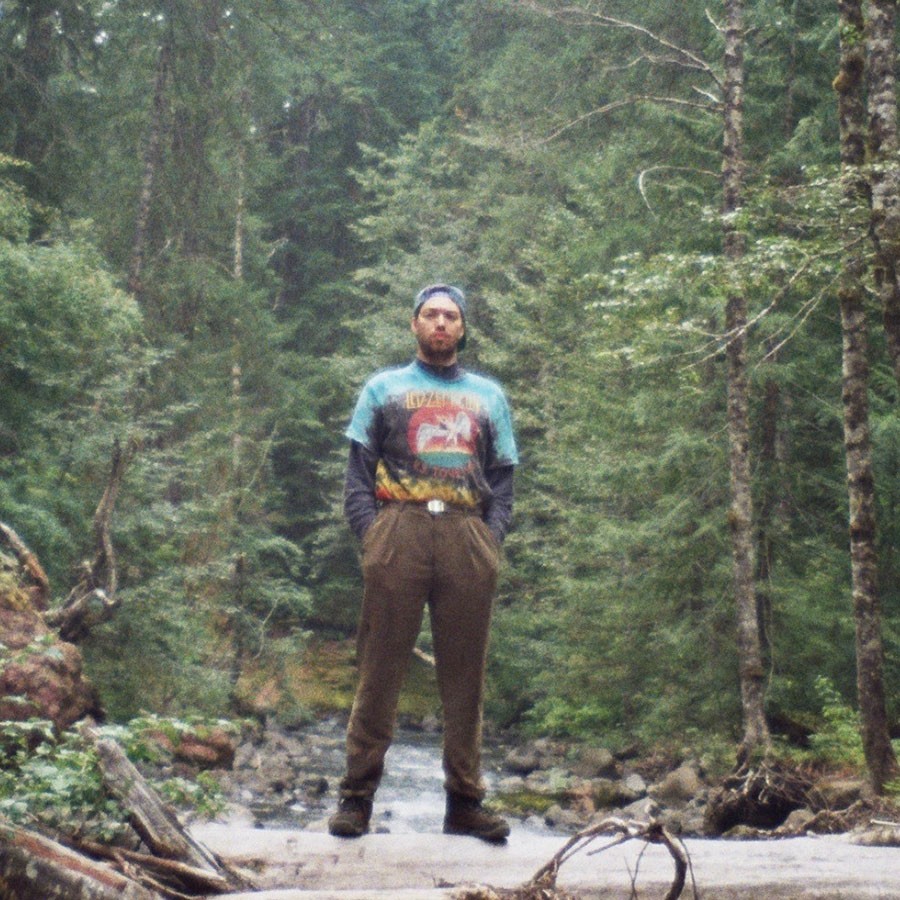“Cadien Lake James’s greatest moment in Chicago music history” Chicago Reader
Posted Thursday, July 9th, 2020 at 4:20 pm

Not only is 2020 the Year of Chicago Music, it’s also the 35th year for the nonprofit Arts & Business Council of Chicago (A&BC), which provides business expertise and training to creatives and their organizations citywide. To celebrate, the A&BC has launched the #ChiMusic35 campaign at ChiMusic35.com. It includes a public poll to determine the consensus 35 greatest moments in Chicago music history (the Reader will publish the results on July 23) and a raffle to benefit the A&BC’s work supporting creative communities struggling with the impact of COVID-19 in the city’s disinvested neighborhoods.
Another part of the campaign is this Reader collaboration: a series spotlighting important figures in Chicago music serving as #ChiMusic35 ambassadors. For this final installment, we hear from Cadien Lake James, vocalist and guitarist in prolific indie-rock band Twin Peaks. The group is part of a young garage-band explosion that came out of Chicago around 2010. Their newest release, the four-song EP Side A, consists of material they finished remotely or under socially distanced conditions after the pandemic shutdown in March; it includes contributions from Ohmme, V.V. Lightbody, Lala Lala, and Tom Reeder, and it comes out Friday, July 3.
This interview was conducted by Ayana Contreras, who’s a DJ, a host and producer at WBEZ radio, and a columnist for DownBeat magazine.
Ayana Contreras: What is your favorite Chicago musical moment?
Cadien Lake James: I love the idea that Larry Heard—who was a jazz musician growing up—in 1984, when he was 17 or 18, bought a synthesizer and a drum machine and just dived headfirst into [the house-music] world. Within a week he had made “Washing Machine” and “Can You Feel It,” very groundbreaking singles. Given the influence he ended up having on the club scene in Chicago and house music, and how integral that is to Chicago’s music community, I think that’s a cool moment.
It’s not the easiest thing to draw a correlation with Twin Peaks’ music, but it’s still very influential to me.
Larry Heard’s single “Washing Machine,” released in 1986 under the name Mr. Fingers
How so?
First of all, it’s what I listened to the most traveling on the road around the country. I got into house music, specifically Chicago house, and then discovered how integral it was to an inclusive Chicago music community. . . . I feel like Chicago notoriously had this DIY inclusive scene [when Twin Peaks], White Mystery, the Yolks, and all these bands were cutting our teeth playing shows in Chicago. We made it playing in people’s basements and raw spaces and houses.
And I don’t know if Chicago would have developed that in its garage-rock community if it wasn’t for the organization done by the Chicago house community, setting the precedent that there were spaces to be made to play music that didn’t have to be in venues, and places that were inclusive to everyone.
You kind of tiptoed around this next question without even knowing it. What do you think it is about Chicago that’s made it a place that has continually given birth to music that’s influential around the world?
Well, I mean, it’s so indebted to Black artists. And the Black music community here, whether it was blues or jazz going into rock ‘n’ roll and then the house community, it’s just been an epicenter for the arts, and there’s so many legendary musicians who came out of here.
Maybe back in the day, with the blues record labels, there was more of an industry presence, but as we entered the 70s, 80s, 90s, there was less of the industry being in Chicago, which I think also created space for artists to collaborate and perform without the competition that you might see in an LA- or New York-based scene, where people are catering to “My big break could come from playing this show, who’s going to be there, who can help my project.”
I think Chicago has been able to just produce so much wonderful music and other art that’s current and pushing ground, which I don’t think [Twin Peaks are] a part of, but it’s still happening in Chicago.
But you could . . . it’s not too late.
Yeah, that’s right.
We’re in the middle of a great big reset.
We’re doing a lot of learning right now.
By submitting a comment here you grant White Mystery a perpetual license to reproduce your words and name/web site in attribution. Inappropriate or irrelevant comments will be removed at an admin's discretion.







